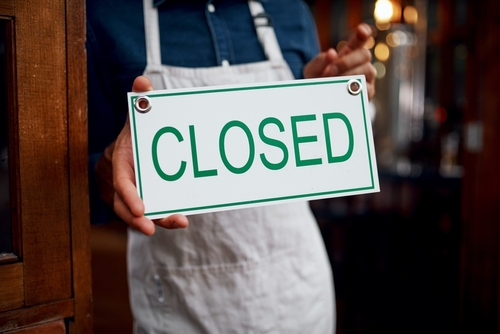When Property Damage Shuts Your Doors: Understanding Business Interruption Coverage with a Texas Property Insurance Lawyer
After Hurricane Beryl swept through Texas in July 2024, thousands of business owners discovered a harsh reality: the business interruption insurance they thought would save them during forced closures might not cover their lost revenue at all. When property damage forces your business to close—whether from hurricanes, fires, floods, or other disasters—the financial strain can be devastating. You still have rent to pay, employees counting on paychecks, and customers who might not return if you’re closed too long. Business interruption insurance is supposed to bridge that gap, but complex policy language and exclusions often leave business owners with denied claims instead of desperately needed compensation. Understanding exactly what your policy covers before disaster strikes can mean the difference between survival and bankruptcy for your business.
???? Pro Tip: Review your business interruption policy annually and document your regular income patterns now—having clear financial records from before a loss makes proving your claim much easier.
When disaster closes your business doors, don’t navigate the insurance maze alone. At JCE Law Group, we help ensure your business interruption claims are clear and comprehensive, increasing your chances of recovery. Ready to protect your financial future? Reach out at 504-754-5884 or contact us today.
Texas Law Protects Your Right to Fair Insurance Claims Processing
Under Texas law, specifically Chapter 542A of the Texas Insurance Code which became effective September 1, 2017, business owners have significant protections when filing property damage claims that trigger business interruption coverage. This chapter applies to claims made under insurance policies providing coverage for real property damage caused by forces of nature including earthquakes, wildfires, floods, tornadoes, lightning, hurricanes, hail, wind, snowstorms, or rainstorms. A Texas property insurance lawyer can help you understand these protections, including the requirement that insurers have 30 days after receiving presuit notice to request inspection of the damaged property, and the inspection must be completed within 60 days if reasonably possible. These statutory timelines prevent insurers from dragging out the claims process while your business hemorrhages money.
???? Pro Tip: Keep detailed logs of all communications with your insurer—Texas courts look favorably on business owners who can demonstrate their insurers delayed or mishandled claims.
Critical Steps and Deadlines for Business Interruption Claims in Texas
The timeline for pursuing business interruption coverage is more complex than many business owners realize. Before you can file a lawsuit against your insurer, Texas law requires you to provide written notice to insurers at least 61 days before filing an action seeking damages—this presuit notice is mandatory. Working with a Houston property insurance attorney ensures you meet all procedural requirements while maximizing your recovery potential. The process typically unfolds in distinct phases that can determine whether you receive full compensation or face an uphill battle.
- Immediate documentation of property damage and business closure (within 24-48 hours of the event)
- Initial claim filing with detailed loss documentation (typically within 30-60 days per policy terms)
- Insurer’s investigation period and potential property inspection request (within 30 days of presuit notice)
- Completion of property inspection if requested (within 60 days of presuit notice when reasonably possible)
- Mandatory 61-day waiting period after presuit notice before filing lawsuit
- If necessary, filing lawsuit for breach of contract or bad faith claims
???? Pro Tip: Start calculating your business interruption losses immediately—include not just lost revenue but also continuing expenses like rent, utilities, and payroll that you must pay despite closure.
How JCE Law Group Fights for Maximum Business Interruption Recovery
At JCE Law Group, we understand that when property damage forces your business to close, every day without income threatens your company’s survival. Our approach begins with a thorough analysis of your policy language, as commercial property insurance can pay some of your lost income if your business is unable to operate normally—but only if the coverage applies to your specific situation. We’ve seen insurers wrongly deny claims by misinterpreting policy language or applying exclusions that don’t actually fit the circumstances. By working with a Texas property insurance lawyer who understands both the insurance industry’s tactics and Texas statutory protections, you position your business for the best possible outcome. We help you consult a lawyer experienced in complex commercial insurance disputes to ensure your claim receives the attention and compensation it deserves.
???? Pro Tip: Don’t accept your insurer’s initial coverage determination as final—many denials are reversed when challenged by experienced counsel who understand policy interpretation.
Hidden Exclusions That Can Devastate Your Business Recovery
One of the most shocking discoveries business owners make is learning about exclusions buried in their policies that can completely eliminate coverage. Some business interruption insurance policies exclude viruses from coverage, a fact that became painfully clear during the COVID-19 pandemic. But exclusions go far beyond pandemic-related closures. Surplus lines insurance companies, which are not subject to state regulation and whose policies and rates TDI doesn’t review, often include broader exclusions than admitted carriers. Understanding these exclusions before you need to file a claim is crucial for any business owner serious about protecting their company’s financial future.
Common Coverage Gaps Business Owners Overlook
Many policies require direct physical damage to trigger business interruption coverage, meaning if authorities order your business closed due to nearby damage but your property remains intact, you might have no coverage. Additionally, waiting periods (often 48-72 hours) mean short-term closures might not qualify for any compensation. A property insurance claim denial Houston businesses face often stems from these technical requirements that insurers strictly enforce. We’ve observed that policies may also exclude coverage for utility service interruptions unless specifically endorsed, leaving businesses without recourse when power outages force extended closures.
???? Pro Tip: Request a coverage review from your agent specifically asking about civil authority coverage, service interruption endorsements, and waiting period modifications—these additions can close critical gaps.
Calculating Your True Business Interruption Losses
Accurately calculating business interruption losses requires more than simply totaling lost sales. The Texas Department of Insurance’s complaint process can resolve complaints when a company clearly violates policy terms, but disputes often arise over the calculation methodology itself. Your claim must account for continuing expenses, lost profits based on historical performance, and extra expenses incurred to minimize the loss. A Business interruption & other business insurance claim requires detailed financial documentation that many business owners struggle to compile after a disaster. Understanding how insurers evaluate these claims helps you present the strongest possible case for full compensation.
Documentation That Strengthens Your Claim
Successful claims rely on comprehensive documentation including tax returns, profit and loss statements, sales records, and growth projections. When dealing with a business insurance dispute attorney Texas businesses trust, providing evidence of seasonal variations, market trends, and planned business activities becomes crucial. Event cancelation insurance claims, which cover economic losses due to unforeseen cancelation of scheduled events, require similar detailed documentation of anticipated revenue and non-refundable expenses.
???? Pro Tip: Create a "business interruption file" now with copies of key financial documents stored off-site or in the cloud—you’ll need these quickly if disaster strikes.
Recent Texas Disasters and Their Impact on Business Interruption Claims
The Federal Register notice published September 18, 2024, documenting the Presidential declaration of major disaster for Texas (FEMA-4798-DR) dated July 9, 2024, highlights the ongoing threat natural disasters pose to Texas businesses. This declaration, covering severe weather events including Hurricane Beryl, underscores why understanding your coverage is critical. When federal disaster declarations are issued, they can trigger certain policy provisions while potentially limiting others. Working with a Texas property insurance lawsuit attorney becomes essential when insurers attempt to limit payouts despite clear policy coverage. The Texas Insurance Code Chapter 542A Property Damage Claims provides specific protections for policyholders dealing with these weather-related losses.
Learning from Recent Claim Disputes
Recent disasters have revealed patterns in how insurers handle business interruption claims. Some companies have argued that business losses were due to general economic conditions rather than property damage, while others have disputed the period of restoration needed for businesses to return to normal operations. A property insurance bad faith lawyer Texas businesses rely on can identify when insurers cross the line from aggressive claims handling to bad faith practices. Understanding these tactics helps business owners prepare stronger initial claims and respond effectively to insurer pushback.
???? Pro Tip: Document not just your physical repairs but also the time needed to restock inventory, rehire staff, and rebuild your customer base—all legitimate components of your business interruption period.
Frequently Asked Questions
Common Coverage Concerns for Texas Business Owners
Business owners facing property damage and potential claims often share similar concerns about their coverage and rights. Understanding these common issues helps you prepare for the claims process and avoid costly mistakes.
???? Pro Tip: Write down all questions about your coverage before meeting with an attorney—this ensures you address all concerns during your consultation.
Understanding Your Next Steps After Property Damage
The path forward after property damage depends on multiple factors including your policy terms, the extent of damage, and your insurer’s initial response. Knowing what to expect helps reduce stress during an already difficult time.
???? Pro Tip: Create a claims timeline tracking every interaction with your insurer—this documentation often proves invaluable if disputes arise.
1. Does business interruption insurance cover losses if my business is closed by civil authorities even though my property wasn’t damaged?
This depends on whether your policy includes "civil authority" coverage. Standard business interruption coverage typically requires direct physical damage to your property. However, civil authority coverage can protect you when government orders prevent access to your business due to damage in your area. Check your policy declarations page for this specific coverage.
2. How long do I have to file a business interruption claim after property damage in Texas?
While Texas law requires presuit notice at least 61 days before filing a lawsuit, your insurance policy likely requires much faster initial notice of loss—often within 30-60 days of the damage. Review your policy’s notice requirements immediately after any loss and comply with all deadlines to preserve your rights.
3. What’s the difference between actual loss sustained and gross earnings coverage for business interruption?
Actual loss sustained coverage compensates for lost net income plus continuing expenses during the restoration period. Gross earnings coverage pays based on your reduction in gross earnings (sales minus cost of goods sold). Actual loss sustained typically provides more comprehensive protection for service businesses, while gross earnings may benefit retail operations.
4. Can my insurer deny my business interruption claim if I can partially operate my business?
Partial operation doesn’t automatically disqualify you from business interruption benefits. Most policies cover the difference between your actual earnings during the restoration period and what you would have earned without the damage. Document all limitations on your operations and their impact on revenue.
5. Should I accept my insurer’s business interruption settlement offer if it seems low?
Never accept a settlement without having it reviewed by a Houston business insurance claim attorney who understands policy interpretation and valuation methods. Initial offers often undervalue claims, particularly regarding the restoration period length and lost income projections. Professional review ensures you receive fair compensation.
Work with a Trusted Property Insurance Lawyer
When property damage threatens your business’s survival, you need more than just an insurance payout—you need an advocate who understands both Texas insurance law and the real-world impact of business interruption. Experienced counsel can mean the difference between a claim denial and the compensation necessary to rebuild. Whether dealing with surplus lines carriers, standard commercial insurers, or navigating Houston property insurance laws, professional legal guidance protects your interests when you’re most vulnerable.
When life’s storms leave your business high and dry, don’t wade through the insurance quagmire solo. JCE Law Group is here to guide you through the twists and turns of claim recovery, offering clear solutions to safeguard your financial future. Give us a ring at 504-754-5884 or contact us today to turn the tide in your favor.



